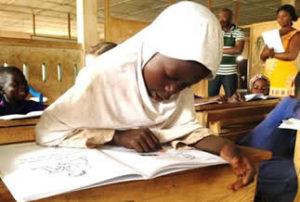Africa urged to avoid politicising education to close global gaps

Mr Grant Bulmuo, the Chief Executive Officer of the Neogenics Education Group, at the weekend, urged African governments to avoid politicising Education, to close the huge existing global gaps.
Mr Bulmuo said there existed huge gaps across board between Africa and the rest of the world, hence the need to help narrow or bridge them as a matter of urgency.
Speaking at the opening of the Global Super Teachers’ Conference, on the theme: “Bridging the Education Gap in Africa”, he said only 8.2 per cent of people in Africa had benefitted from University or Tertiary education, describing it as the lowest participation rate in the world.
He said in developing countries, there existed gaps in learning, achievements and opportunity, hence the need for the gaps to be closed among teachers, students and parents.
Mr Bulmuo said there existed disparity between what a learner had actually learned and what they are expected to learn at any level, grade, class or age.
To be able to close the gaps, he said there was the need to recognise the existing educational attainment gaps between different groups of learners such as single parents against whole nuclear family; middle income against low income; educated parents against uneducated parents; and employed parents against unemployed parents.
He said the inequitable distribution of resources or the various inputs, either directly or indirectly into the learners’ life, school they attend and the community they live in, affected the gaps that existed among learners, hence the need to strategise to put them on the same platform.
Mr Bulmuo said when gaps were not narrowed, it would leave behind deep consequences, which would compound over time and affect the life chances of learners, leading to further socio-cultural and economic gaps.
He said a great way the gap could be narrowed within schools was the good use of contextual data in lesson planning and lesson delivering, adding that, it called for planning with the individual uniqueness of learner in mind.
He said there was the need for school authorities and teachers to identify the gaps that existed and close them, adding that, the gaps within school include competence in ICT, communication, literacy skills, pedagogical gaps, expertise, experience and subject competency gaps, among teachers.
Mr Bulmuo said one of the greatest challenges of Africa’s educational sector was the absence of effective collaboration among schools and the various players in education, adding that, more could be done when ideas, resources and thoughts were shared among key stakeholders.
Source: GNA
